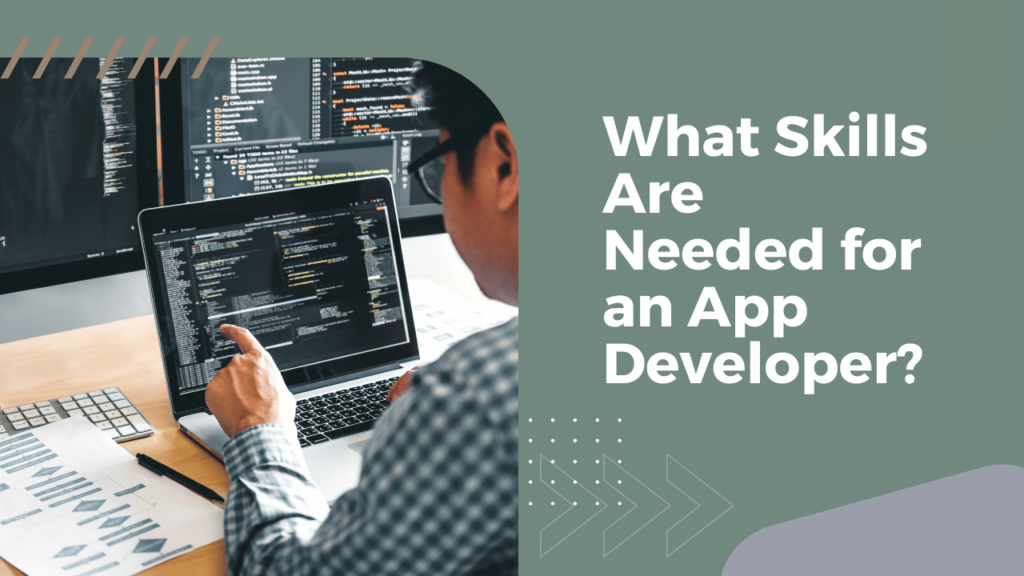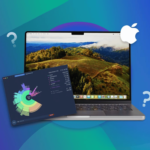The tech world is moving fast. App developers are the ones putting the pedal to the metal. Over 3.5 million apps are available on the Google Play Store, and behind each one is a skilled developer solving real-world problems. If you want to be one of them, you need more than just coding knowledge—you need the right mix of skills to stand out.
From coding languages to problem-solving, the journey to becoming an app developer isn’t about learning one thing well. It’s about crafting a skill set that lets you build, create, and innovate. You need to understand how to code and make your code come to life for real users. Successful developers don’t just write lines of code—they shape experiences. Whether it’s using frameworks like React Native to save time or crafting intuitive UI/UX that delights users, the skills required are as dynamic as the industry itself.
This article will explain precisely what you need to know to thrive in app development. We’re talking technical skills, essential tools, and the softer skills that genuinely set professionals apart. Ready to build your foundation? Let’s dive in.
Core Technical Skills Required
Programming Languages
A fundamental part of an app developer’s toolkit is proficiency in multiple programming languages. This isn’t optional—it’s essential. To develop functional and compatible apps across platforms, you need to be comfortable with languages like Java, Swift, Kotlin, and JavaScript. Each language has its strengths. Java and Kotlin, for example, are dominant in Android development, while Swift is the standard for iOS. A solid understanding of object-oriented programming (OOP) concepts is equally important, as it underpins most modern app development.
The right programming language is the foundation of effective software development skills. If you want to make impactful applications, be ready to pick the language that fits the project’s needs and know it well. Sometimes, that means learning more than one—often two or three. For instance, JavaScript plays an important role in many cross-platform tools, and understanding its syntax and logic can be incredibly beneficial.
Front-End vs. Back-End Development
App development is not just about how an app looks; it’s about how it functions underneath the hood. Front-end development involves the visual interface and ensuring a smooth, intuitive experience for users. This is where understanding UI/UX design principles is a must. The tools you will use can include popular front-end frameworks such as React Native for mobile development, which combines the best of native functionality with JavaScript’s flexibility.
On the other hand, back-end development focuses on what happens behind the scenes—how data moves, how requests are managed, and how the app communicates with servers and databases. Skills here often include knowledge of server-side programming languages like Node.js or Python. Understanding database management is crucial, allowing you to store, retrieve, and manage data efficiently.
Mobile Development Frameworks
Frameworks make developers’ lives easier. React Native and Flutter are among the top frameworks to learn. They allow for cross-platform app development, meaning you can create applications that work seamlessly on Android and iOS without building from scratch twice. Choosing the right framework can save a lot of development time and effort, so understanding when and how to use them is essential.
APIs and Integration
A strong developer knows that modern apps rarely exist in isolation. Apps often need to communicate with third-party services for functions like payments, social logins, or fetching data. This is where a deep understanding of API integration skills comes into play. An API—or Application Programming Interface—allows different software components to interact. For app developers, effectively integrating these APIs can make or break an app’s functionality.
Key Tools and Technologies

Integrated Development Environments (IDEs)
Developers need efficient tools to create, debug, and deploy their code. Integrated Development Environments (IDEs) like Android Studio and Xcode are vital. They simplify the coding process by providing various built-in tools to edit code, simulate applications, and check for errors.
Familiarity with these tools also includes knowing how to use version control systems like Git and platforms such as GitHub or Bitbucket. These are essential for managing and tracking changes to your code, especially when working within a team.
Debugging and Troubleshooting
Writing code is one thing, but debugging it is quite another. Debugging requires patience, methodical analysis, and a good understanding of the code’s behavior. Good developers are not only adept at writing code but are also skilled at troubleshooting issues that may arise during development or after deployment.
Understanding how to use debugging tools provided in IDEs and follow test-driven development practices can greatly enhance the quality of the code.
UI/UX Design Knowledge
Importance of User-Centric Design
No matter how great your code is, the app won’t gain traction if the user interface is poorly designed. To be an outstanding app developer, you need at least a working knowledge of UI/UX design principles. It’s about understanding the user experience (UX) and ensuring that every tap, swipe, and click delivers value to the user. That’s why using tools like Sketch, Figma, and Adobe XD for wireframing and prototyping is highly recommended.
Wireframing and Prototyping
Wireframing tools allow developers to create simple layouts that show how an application will function and feel before writing a single line of code. This saves time and ensures the team understands what is being built and why. A well-crafted prototype is a communication tool between developers, designers, and clients, ensuring everyone is on the same page.
Soft Skills and Problem-Solving

Analytical and Logical Thinking
An effective app developer is as much a problem-solver as they are a coder. You’ll often face complex challenges requiring a logical and analytical approach. This could involve breaking down a big problem into smaller, more manageable components or finding a workaround to solve an issue efficiently. A solid problem-solving approach ensures that projects move forward without major disruptions.
Teamwork and Communication
While technical skills are crucial, soft skills like teamwork and communication are just as important. Developers rarely work in isolation. Whether you’re working with other developers, collaborating with designers, or reporting to stakeholders, your ability to communicate effectively is key. Team collaboration tools like Slack, Trello, or Asana are often used to streamline communication and manage project tasks.
Time Management
With app development projects, there are almost always strict deadlines to meet. Knowing how to prioritize tasks and manage your time effectively is essential. Developers often work in Agile environments, where projects are broken into smaller sprints, and adapting to changes and working within this structure is a highly sought-after skill.
Testing and Debugging
Test-Driven Development (TDD)
Testing is an integral part of development. Test-driven development (TDD) is a practice where developers write tests for each small functionality before they write the actual code. This approach helps reduce bugs and ensures the app works as expected. Being familiar with TDD and unit testing will significantly enhance the quality and reliability of your applications.
Debugging Tools and Practices
Good developers not only identify issues but also find quick and effective solutions. Every developer needs to master the daily tasks of using debugging tools, setting breakpoints, and checking logs. Each IDE has its tools to assist with this, so familiarity with your environment is essential for efficient troubleshooting.
Security and Data Management

Data Security Best Practices
Security is no longer optional; it’s a core part of the development process. Users trust that their data will be kept safe, and it’s your responsibility as a developer to ensure this trust is not broken. This involves understanding data encryption, securing API calls, and ensuring third-party services comply with security standards.
Database Management
Most apps rely on databases to store user information. Knowledge of popular databases like MySQL, SQLite, and even NoSQL databases such as MongoDB is a must. Understanding how to structure, retrieve, and manipulate data ensures your app runs efficiently and provides a smooth user experience.
Continuous Learning and Industry Trends
Staying Updated with Technology
Technology constantly evolves, so an app developer’s skillset is never complete. Whether it’s the release of a new mobile development framework, advancements in cloud computing, or improvements in continuous integration and deployment (CI/CD) tools, staying updated is critical. Dedicate time to learning new languages, experimenting with new tools, and staying abreast of emerging trends in app development.
Emerging Trends in Mobile App Development
We are seeing more developers integrate AI and machine learning to create smarter, more intuitive apps. AR/VR and the Internet of Things are other technologies shaping the future of app development. Being an early adopter of these technologies can give you a significant edge over the competition.
Additional Skills for Success
Skill Area |
Description |
|---|---|
| Cloud Computing | Understanding cloud platforms like AWS, Azure, or Google Cloud for app hosting and scalability. |
| DevOps and CI/CD | Familiarity with continuous integration/continuous deployment for streamlined development cycles. |
| Code Documentation | Writing clear documentation to ensure code is understandable for future developers. |
| Cross-Platform Testing | Ability to test across multiple devices and operating systems to ensure consistent performance. |
| Performance Optimization | Skills in optimizing app speed and reducing memory usage for better user experience. |
Conclusion
In summary, the role of an app developer in the information technology industry is diverse, demanding, and immensely rewarding. It requires technical skills, tools proficiency, UI/UX understanding, and soft skills like problem-solving and teamwork. Whether you’re just starting out or looking to sharpen your skills, there’s always something new to learn. Mastering these abilities will help you create not just functional apps but truly exceptional ones.
Keep building, keep innovating, and, most importantly, keep learning. The world of app development is limitless, and developers like you need to push their boundaries.



